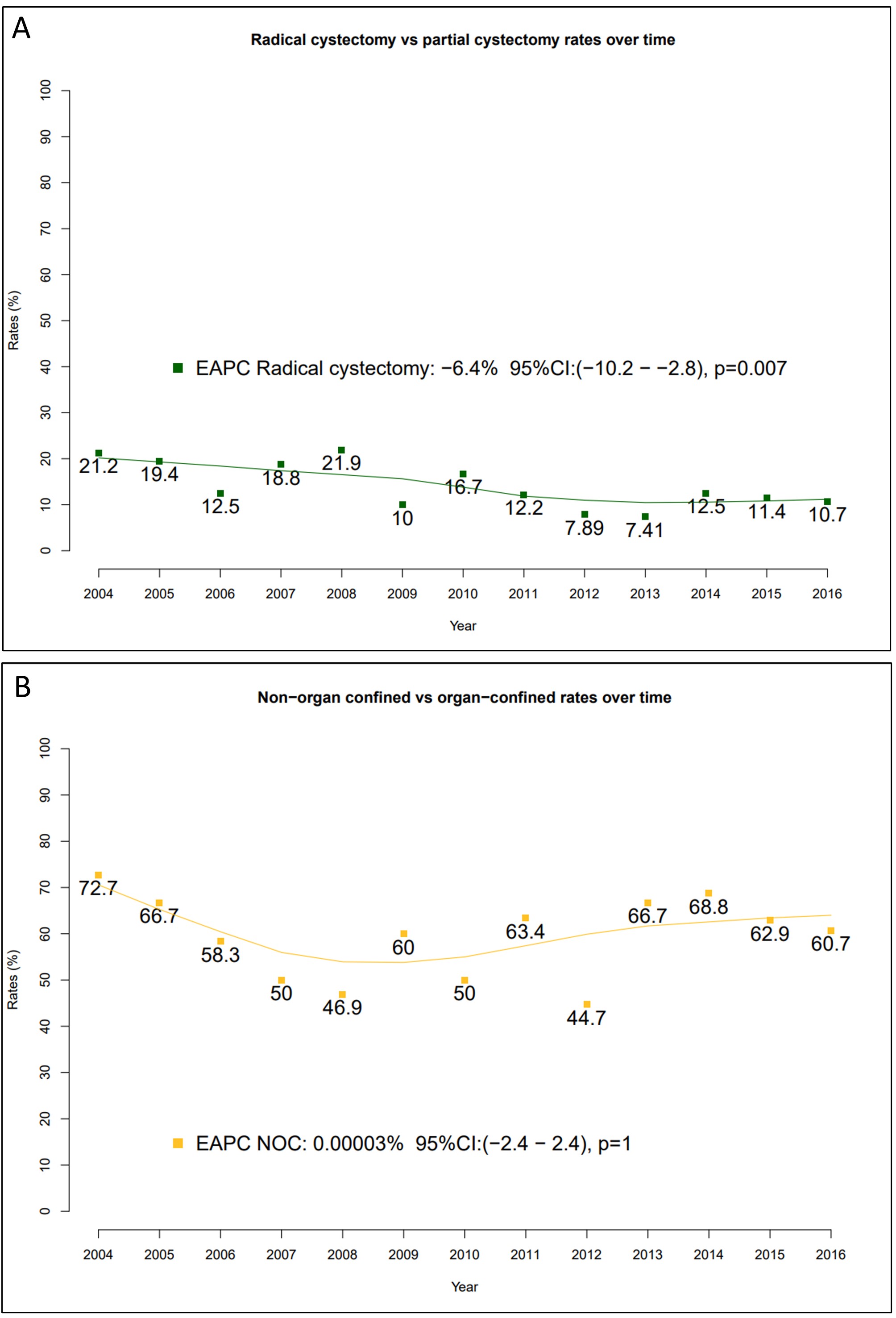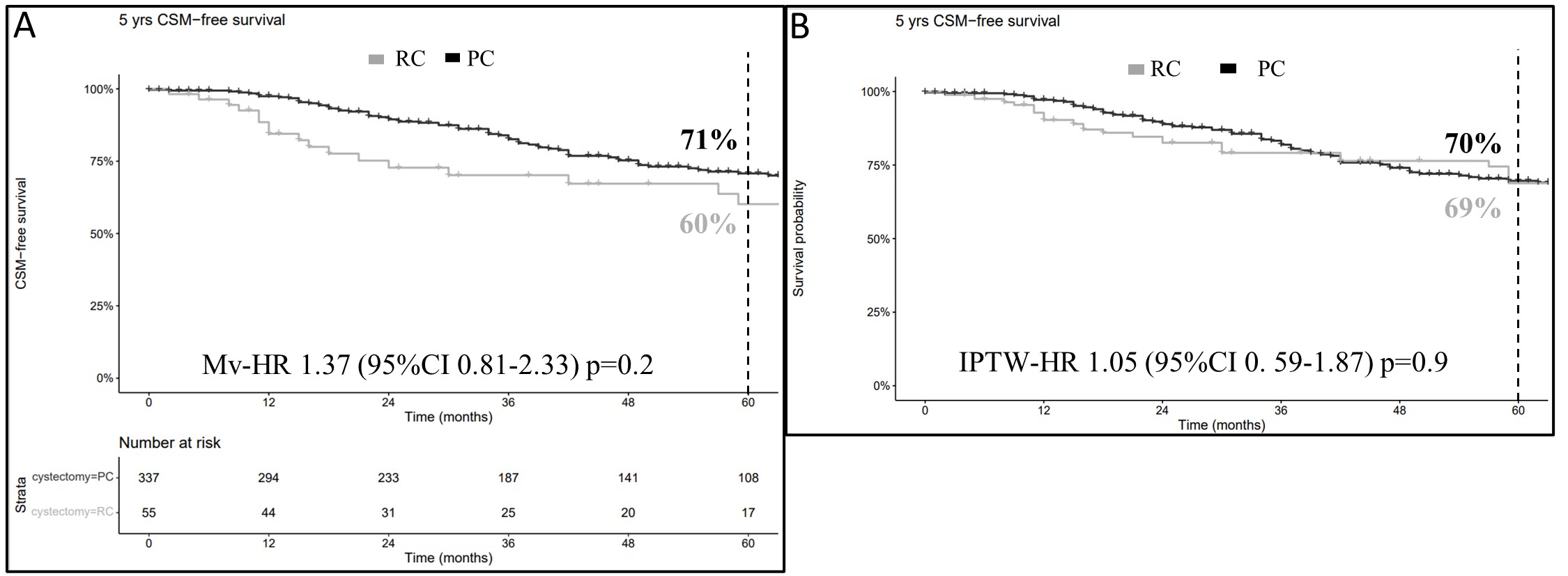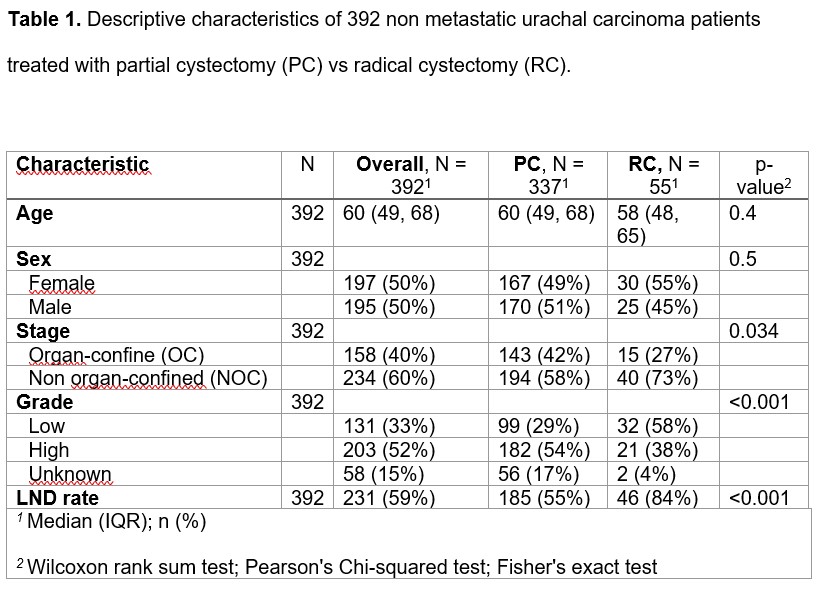Back
Poster, Podium & Video Sessions
Podium
PD42: Bladder Cancer: Invasive IV
PD42-07: Radical vs Partial Cystectomy for Urachal Carcinoma: A Population-Based Analysis
Sunday, May 15, 2022
10:30 AM – 10:40 AM
Location: Room 245
Rocco Simone Flammia*, Rome, Italy, Francesco Chierigo, Genova, Italy, Benedikt Hoeh, Frankfurt, Germany, Gabriele Sorce, Milan, Italy, Christoph Würnschimmel, Hamburg, Germany, Zhe Tian, Montreal, Canada, Costantino Leonardo, Rome, Italy, Derya Tilki, Hamburg, Germany, Felix Chun, Frankfurt, Germany, Carlo Terrone, Genova, Italy, Francesco Montorsi, Milan, Italy, Shahrokh Shariat, Wien, Austria, Michele Gallucci, Rome, Italy, Pierre karakiewicz, Montreal, Canada
- RF
Rocco Simone Flammia, MD (he/him/his)
Sapienza University - Policlinico Umberto I
Podium Presenter(s)
Introduction: Partial cystectomy (PC) represents the standard of care for non-metastatic urachal carcinoma (UrC). We tested whether radical cystectomy (RC) may hold a greater survival benefit.
Methods: Within the SEER database (2004-2016), we identified non-metastatic UrC patients aged = 18 years. Estimated annual percentage change (EAPC) was applied to examine RC rate, as well as stage distribution over time. Kaplan-Meier plots and Cox regression models addressed cancer-specific mortality (CSM). All CSM analyses were repeated after inverse probability of treatment weighting (IPTW) to control for differences between RC vs PC patients.
Results: We identified 392 non-metastatic UrC patients treated with cystectomy. Of those, 55 (14%) underwent RC vs 337 (86%) underwent PC. RC patients harbored higher stage (non-organ confined, 58 vs 29%, p=0.03) higher grade (GG3-GG4, 56 vs 29%, p<0.001) and exhibited higher rate of PLND (84 vs 55%, p<0.001) than their PC counterparts. RC rates were higher in non-organ confined (NOC) vs organ-confined (OC) patients (17 vs 10%, p=0.04). RC rates decreased over time from 2004 to 2016 (-6%, p=0.007). Five-year CSM-free survival rates were respectively 60 vs 71% for RC vs PC (multivariable HR of 1.37 p=0.2). After IPTW, five-year CSM-free survival rates were respectively 69 vs 70% for RC vs PC (IPTW-HR of 1.05, p=0.9).
Conclusions: RC rate is low in non-metastatic UrC and decreased over time. RC use instead of PC use does not result in lower CSM. In consequence, PC use should continue, unless contraindicated due to either extension of primary tumor or insufficient bladder capacity.
Source of Funding: nono



Methods: Within the SEER database (2004-2016), we identified non-metastatic UrC patients aged = 18 years. Estimated annual percentage change (EAPC) was applied to examine RC rate, as well as stage distribution over time. Kaplan-Meier plots and Cox regression models addressed cancer-specific mortality (CSM). All CSM analyses were repeated after inverse probability of treatment weighting (IPTW) to control for differences between RC vs PC patients.
Results: We identified 392 non-metastatic UrC patients treated with cystectomy. Of those, 55 (14%) underwent RC vs 337 (86%) underwent PC. RC patients harbored higher stage (non-organ confined, 58 vs 29%, p=0.03) higher grade (GG3-GG4, 56 vs 29%, p<0.001) and exhibited higher rate of PLND (84 vs 55%, p<0.001) than their PC counterparts. RC rates were higher in non-organ confined (NOC) vs organ-confined (OC) patients (17 vs 10%, p=0.04). RC rates decreased over time from 2004 to 2016 (-6%, p=0.007). Five-year CSM-free survival rates were respectively 60 vs 71% for RC vs PC (multivariable HR of 1.37 p=0.2). After IPTW, five-year CSM-free survival rates were respectively 69 vs 70% for RC vs PC (IPTW-HR of 1.05, p=0.9).
Conclusions: RC rate is low in non-metastatic UrC and decreased over time. RC use instead of PC use does not result in lower CSM. In consequence, PC use should continue, unless contraindicated due to either extension of primary tumor or insufficient bladder capacity.
Source of Funding: nono




.jpg)
.jpg)